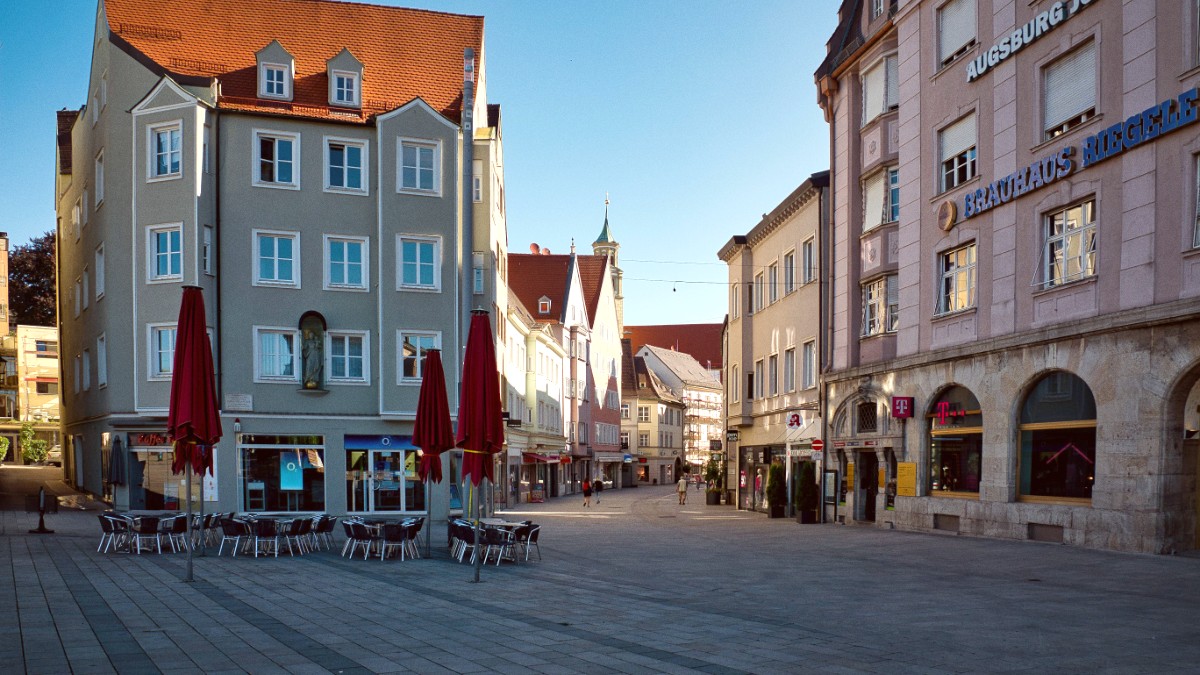
Bavaria, Germany
Augsburg's past as a wealthy trade hub meant historical access to various ingredients and influences from across Europe. While the city took on some international elements, its core culinary identity remained German, shaped by local produce, meats, and traditional cooking methods.
You will find pork and beef as prominent meats, often prepared as roasts or sausages. Potatoes appear frequently, as boiled, roasted, or in dumpling form. Cabbage, especially sauerkraut, is a common side. Root vegetables, onions, and often caraway seeds, parsley, and horseradish contribute distinct flavors. Rich gravies frequently accompany meat dishes.
Making a reservation for dinner is recommended, especially on weekends or if dining at a popular restaurant. For larger groups, reservations are a must.
Restaurants in Germany do not typically add a service charge to the bill. Tipping (5-10% for good service) is customary but not obligatory; it displays appreciation.
Ordering a drink with your meal is common. Tap water ("Leitungswasser") is not typically presented by default; you will need to ask for it. Otherwise, order "Mineralwasser" (bottled mineral water), either still ("still") or sparkling ("mit Gas" or "sprudelnd").
A famous regional plum cake, this pastry often features a yeast dough base topped with fresh, ripe plums. It is notably appealing in autumn when plums are in season.
Find this delightful cake in local bakeries (Bäckerei) and cafes throughout the city.
This comforting dish consists of hearty egg noodles (Spätzle) baked or mixed with a generous amount of cheese, often Emmentaler or Bergkäse. It frequently tops with crispy fried onions.
A staple comfort food, widely available in traditional Bavarian and Swabian restaurants.
A classic Bavarian roasted pork knuckle, renowned for its incredibly crispy crackling skin and tender, juicy meat inside. It often serves with a potato dumpling (Knödel) and sauerkraut.
Many traditional Bavarian restaurants proudly feature this substantial meal.
Grilled sausage (Bratwurst) cut into pieces, smothered in a tangy curry ketchup sauce. A popular German fast food.
A simple yet satisfying grilled sausage served in a bread roll.
Augsburg presents upscale dining with modern German cuisine.
Traditional Bavarian and Swabian cuisine in inviting settings.
Affordable and quick dining options throughout the city.
A permanent market hall in the city center. It features stalls selling fresh produce, meats, cheese, baked goods, flowers. It also hosts small eateries serving quick, fresh meals from various cuisines.
An excellent spot for lunch or a snack.
Smaller weekly farmers' markets operate in various districts of Augsburg, offering local and seasonal produce. Inquire locally for specific locations and times during your visit.
A good way to experience local life and find fresh ingredients.
Pizzerias and trattorias
Doner and traditional dishes
Chinese, Thai, Vietnamese, Japanese
Greek, Indian, and more
Awareness of food allergies and intolerances is growing in Germany. It is always advisable to clearly state your allergies to restaurant staff.
Say, "Ich habe eine Glutenunverträglichkeit" (I have a gluten intolerance) or "Ich bin allergisch gegen..." (I am allergic to...).
Larger restaurants and modern eateries may be more accommodating. Some bakeries now sell gluten-free bread or pastries, but options remain limited compared to larger cities.
Use apps like HappyCow to find vegan and vegetarian restaurants, or search online for "glutenfrei Augsburg" or "vegan Augsburg."
From late November to December 24th, Augsburg hosts a famous Christmas market. It teems with traditional food and drink stalls, offering Glühwein (mulled wine), roasted almonds, various sausages, and sweet treats.
Restaurants located in historic buildings or those that integrate Augsburg's water theme. Experience a meal at a traditional "Gasthaus" or in the Ratskeller in the Town Hall for an authentic cultural experience.
Local culinary schools or guesthouses occasionally provide Bavarian cooking classes, giving a hands-on opportunity to learn how to prepare traditional dishes.
Guided food tours sometimes explore the city's culinary heritage, visiting markets and traditional eateries. This presents a understanding of local gastronomy.
The surrounding region of Swabia and Bavaria is agricultural. You might find opportunities for farm visits or direct purchases from food producers (e.g., cheese makers, fruit orchards).
Tap water ("Leitungswasser") is generally not presented by default in restaurants. You will need to ask for it, and some establishments might charge a small fee.
Bread often comes with meals, sometimes as a separate charge. If you do not wish for it, politely decline.
Do not hesitate to try "Mittagsmenü" (lunch menu) options at restaurants. They present a more affordable way to sample quality local cuisine than dinner menus.
Popular restaurants, especially on weekends or for larger groups, may require reservations. Plan ahead for your dining experiences.
Clearly state any dietary needs or allergies to staff. Most establishments appreciate clear communication.
Augsburg's diverse culinary scene caters to various tastes. From traditional hearty meals to international flavors, your taste buds will find plenty to savor.